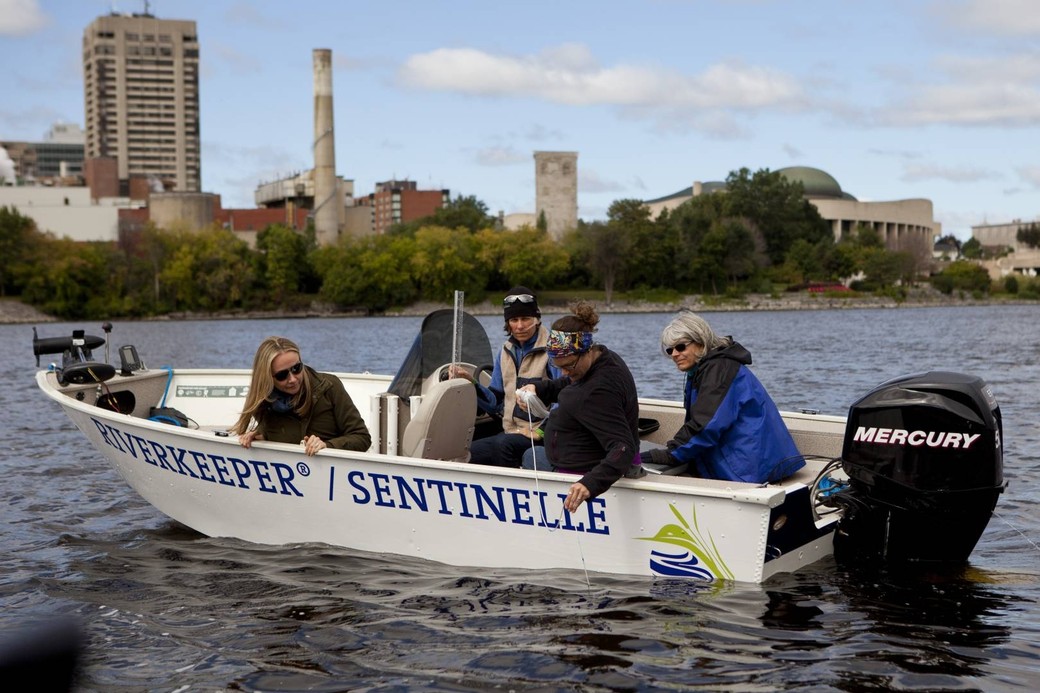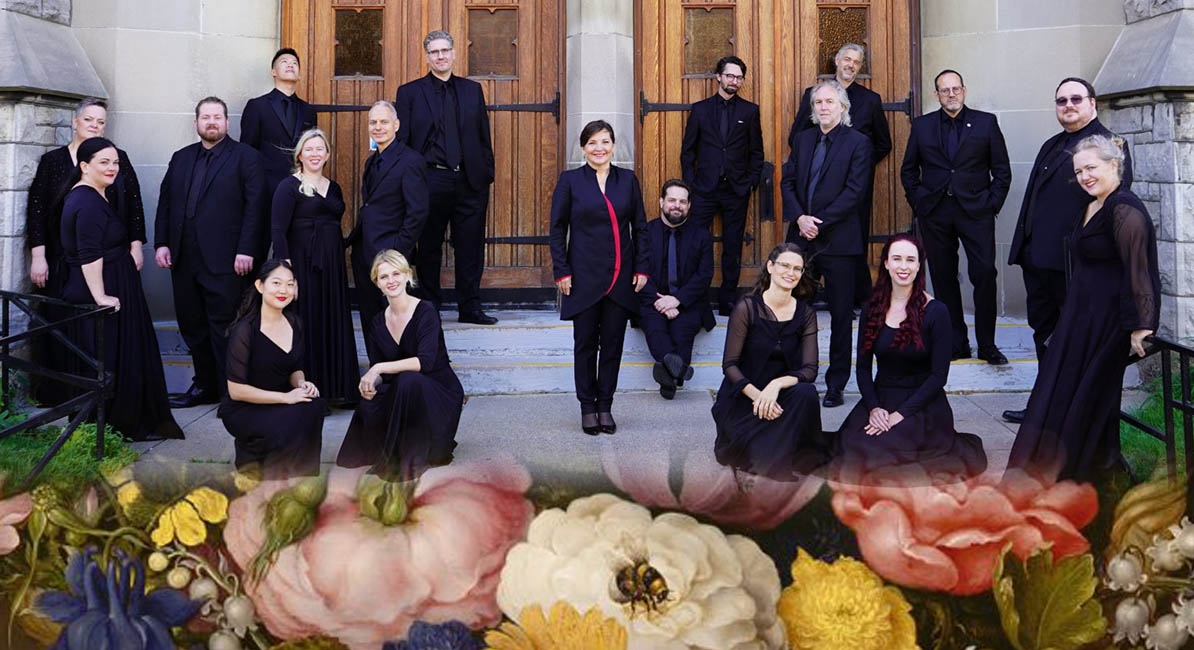
The Blue Story of the Ottawa River
As I travel the Ottawa River, I can’t help but be
impressed with its magnificent diversification.
Every turn in the waterway brings a rich new
experience. Along the shoreline are subtle signs
of those who came before us, and in the tranquility
of early morning one can almost hear the sounds of
the native peoples who for thousands of years
paddled this traditional trade route.
The Ottawa River is the definitive exploration route
– of yesterday and today – into the heartland
of our beloved Canada.
– Len Hopkins
The Ottawa River has many stories to tell.
They are the stories of the Algonquin heritage, of colonialism, of nation-building and the Industrial Revolution. They are the stories of everyone who shares the river: whether fishers, kayakers or canoeists.
But Alexandra Cousteau, grand-daughter of the world-famous oceanographer and conservationist Jacques-Yves Cousteau, will help the Ottawa River tell its blue, untold story.
Through her not-for-profit organization Blue Legacy International, Cousteau continues to do what her grandfather and father devoted their lives to: conservation of the Earth’s precious resource – water. She traveled to Ottawa as part of River Mission – a joint initiative between the young generation of the de Gaspé Beaubien Foundation, Blue Legacy and the Ottawa Riverkeeper to raise awareness of the poor health of the Ottawa River.
In September, Cousteau and her team spent 10 days on the Ottawa River. During her stay, Cousteau shot three short films about the river’s water quality, dams and governance.
Cousteau traveled along the river, meeting community leaders and volunteers. She explored the river watersheds and studied the way hydro dams are built. Even though Cousteau and her team were happy to see frogs and turtles in the river just below Parliament Hill, Cousteau says there is still a lot of work to do to protect the Ottawa River.
“The Ottawa River faces challenges of improving water quality in the river, managing the impacts of dams on river ecology and biodiversity, and perhaps – most critical of all – creating a collaborative management strategy for the river that bridges the different government entities,” Cousteau says.
The Ottawa River Watchdog
“Life,” says Meredith Brown. “The Ottawa River signifies life for the people of Ontario and Quebec. We all need water to survive.”
Brown is the executive director of Ottawa Riverkeeper – a grassroots charity formed to protect and restore the health of the Ottawa River. For almost a decade, Brown has been bringing important issues such as sewage dumping and radioactive waste to the attention of the public and governments.
Brown says the Ottawa River faces almost every issue threatening its fresh waters: from dams to nuclear pollution, from municipal sewage to shoreline and floodplain development.
With Cousteau’s film crew, Brown sampled the river’s water for dissolved oxygen, water clarity, alkalinity, phosphorus and nitrogen. These are basic water quality parameters to monitor, Brown says.
But many toxic chemicals go into the river. Ottawa Riverkeeper simply doesn’t have the means to implement a thorough water quality monitoring program.
“We know our river contains pesticides, pharmaceuticals, ibuprofen, estrogen, tritium, and heavy metals,” Brown says. “There are many different compounds going into the river that come full circle to us as they can end up in our drinking water.”
The Ottawa River needs help. Brown hopes that Cousteau will put the spotlight on the river.
The Ottawa River Needs a Collaborative Government and One Strategy: Cousteau
Cousteau says that Ontario, Quebec and First Nations communities need to work together to preserve the Ottawa River but that, so far, governments have no common plan.
“My crew and I were struck by the lack of communication between the two provinces and especially between Ottawa and Gatineau regarding the work that each is – or is not – doing to address problems such as pollution, sewage overflow, E. coli, etc.,” Cousteau says. “There also seemed to be a lot of tension from both sides that is counter-productive, especially since people on both sides of the river share a sincere concern for the health of their river.”
Many government agencies are involved in regulating aspects of protecting the Ottawa River. Yet there is little accountability, Brown agrees.
“The federal government could do a better job regulating toxic substances, which I know is a big challenge, but critically important,” Brown says. “The federal government also needs to enforce its own regulations. There is a lack of understanding about the economic benefits that a healthy river brings to our communities and to our provinces.”
Will the Governments Keep Their Promise?
Last year, Ecology Ottawa launched a petition to support the Ottawa River Action Plan to stop sewage spills. Over 10,000 people signed the petition, calling on the federal and provincial governments to support the city’s plan.
Graham Saul, executive director of Ecology Ottawa, says Minister John Baird, who served as the Minister of Environment in 2007-2008, and again as an interim environment minister in 2010- 2011, promised in writing that he will make the Ottawa River Action Plan a priority in the in 2014’s federal infrastructure funding.
“I’ve been told that the challenges with the National Capital Commission are resolved, and really the last remaining barrier is the federal and provincial government coming up with the money,” Saul says.
Ottawa Life Magazine asked Minister Baird about his promise, and received an email from Rick Roth, a spokesman for Baird.
“We are proud to have been the first level of government to fund the Ottawa River Action Plan,” Roth writes. “Minister Baird has repeatedly urged municipal leaders to make protecting the Ottawa River – one of Canada’s heritage waterways – a priority. He views this as a moral issue.”
Roth writes that the City of Ottawa is urged to spend the $33 million that the federal government committed for the Ottawa River clean-up… and that the city has yet to seek reimbursement for even a fraction of that funding.
Dixon Weir, general manager of Environmental Services, says the City received $33 million from the federal and provincial governments five years ago. The funds were used to implement sewage separation projects that have resulted in a 70% decrease of sewer overflow volumes.
Now, the City of Ottawa is working on another project which will effectively reduce combined sewer overflow volumes to zero, Weir says. “The City has committed its share of the funding for this project as part of the draft 2014 Budget.”
As for Minister Baird, he still promises to support the Ottawa River Action Plan in the upcoming budget.
David McGuinty, Member of Parliament for Ottawa South, says he sees nothing specific regarding the Ottawa River in next year’s federal budget: “I know Mr. Baird says he is committed, but I think it’s time for Minister Baird to put his money where his mouth is.”
McGuinty says the federal government should do more than just fund the Ottawa River Action Plan. McGuinty has been long calling on the federal government (and other levels of government) to create a single united council with a holistic approach for the Ottawa River.
All It Needs Is Love, Love Is All the River Needs
A young generation of the de Gaspé Beaubien Foundation stepped up to raise awareness about preserving the Ottawa River among Quebec’s population. The foundation committed $490,000 to the River Mission.
Dominique Monchamp, the executive director of the de Gaspé Beaubien Foundation, says she and the fourth generation of the de Gaspé Beaubien family were inspired by working with Cousteau’s team and Ottawa Riverkeeper.
“The reason for these expeditions is we believe we must go on the river, feel the river, love the river, touch the river, and live the river to better understand how we can make a difference,” says Monchamp.
That’s why the next-generation de Gaspé Beaubien family believes the decision-makers should first listen to what the river has to tell them, Monchamp observes. “They want to find a way to bring these people on the river. The minute you are on the water – you just fall in love with that river, and you would want the best for it.”
Cousteau says people should take the time to experience all that the river has to offer, find out what initiatives exist in the communities and join the effort to protect the river.
“As my grandfather used to tell me: ‘People protect what they love, and they love what they know’,” Cousteau says.
“The Ottawa River needs Ontarians and Québécois to work together to protect it.”
Cousteau’s short films will be released in 2014. The final phase of the River Mission will be to host the Ottawa River Summit in 2015.
Hopefully, the summit will bring together key players and stakeholders of the watershed to come up with a united strategy to protect the Ottawa River.

















